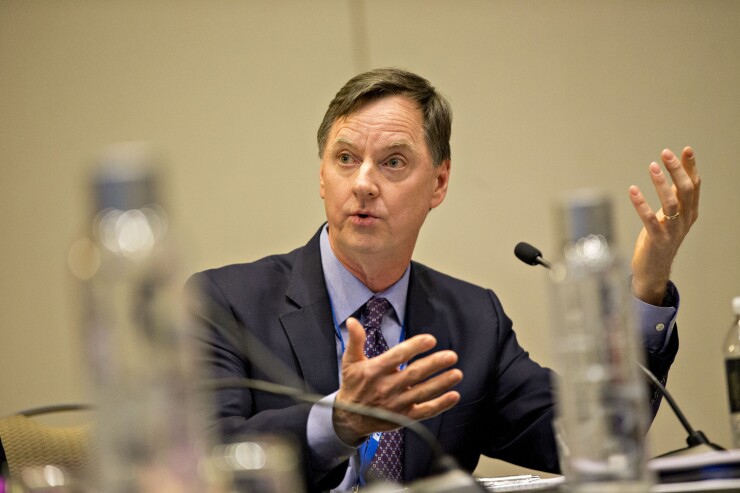The Federal Reserve may be well-served by postponing additional interest-rate increases until inflation data show a stronger pickup in price pressures, Chicago Fed President Charles Evans said.
“I do think that there is merit to the argument that waiting just a little bit longer” would help policy makers “to be absolutely sure that the inflation data is going to move,” Evans said Friday during a Bloomberg Television interview. He dissented against the Fed’s rate increase in December, though he’s not a voting member of the policy-setting Federal Open Market Committee this year.

Futures markets suggest investors are nearly certain that the FOMC will raise interest rates when it meets March 20-21, following a U.S. Labor Department report released Friday that showed strong job growth in February. Wage growth, however, decelerated — to 2.6%, from 2.8% the month before.
“I thought it was a really good report,” Evans said. “This is one of those interesting developments, that even though the job market is very strong, we still haven’t seen really strong wage growth.”
Inflation has been subdued since the 2008 financial crisis, and consumer surveys have showed a slide in household inflation expectations in recent years. A widely followed gauge based on the prices of personal consumption expenditures excluding food and energy items was just 1.5% in January, and has been below the Fed’s 2% target throughout most of the expansion.
Many Fed officials have expressed confidence that low unemployment will eventually put upward pressure on prices, returning inflation to 2%. Projections published in December showed the median FOMC participant thought it would be appropriate to authorize three quarter-point rate hikes this year, and investors are giving them pretty good odds of doing so, according to interest-rate futures. New projections will be published after this month’s gathering.
Low unemployment “ought to exert some upward pressure on inflation, but I think those effects would be measured as pretty small,” Evans said. “The fact that wages haven’t picked up does make you wonder a little bit about that.”





